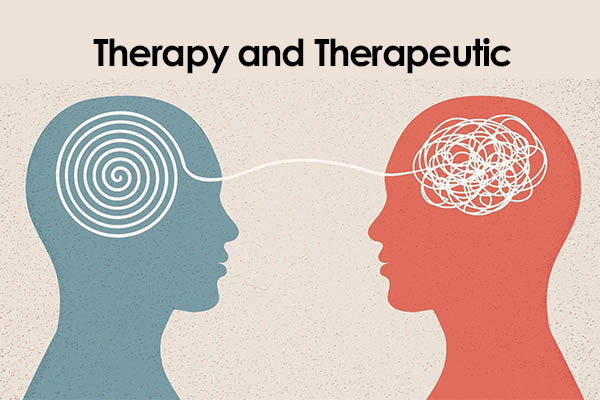What is therapy?
Therapy is an umbrella term for a variety of modern therapy solutions that focus on exploring options in counseling, psychology, and wellness. It is a process of talking with a trained therapist to help you better understand your thoughts, emotions, and behaviors. The aim of therapy is to provide support, insight, and guidance while allowing the client to find the answers to their own questions. Therapy can involve talking about current issues, examining past experiences, or discussing strategies for future growth. A therapist may also use different tools to facilitate the process, such as mindfulness, relaxation techniques, and guided imagery. Regardless of the approach taken, the ultimate goal of therapy is to help people feel happier and more fulfilled in their lives.
The different types of therapy
There are many different types of therapy that can be helpful for a wide range of mental health issues. Here is a brief overview of some common types of therapy:
1. Cognitive-behavioral therapy (CBT):
This type of therapy focuses on the relationship between thoughts, feelings, and behaviors. The goal is to identify negative or distorted thought patterns and replace them with more accurate and helpful thoughts. CBT can be effective for a variety of issues, including anxiety and depression.
2. Dialectical behavior therapy (DBT):
This type of therapy is a form of CBT that emphasizes the importance of balancing acceptance and change. It is often used to treat borderline personality disorder, but can also be helpful for other mental health issues such as substance abuse and eating disorders.
3. Psychoanalytic or psychodynamic therapy:
This type of therapy focuses on unconscious thoughts and feelings as they relate to current behaviors and problems. The goal is to bring unconscious material to consciousness in order to gain insight and resolve conflicts.
4. Humanistic therapy:
This type of therapy focuses on the individual’s unique experience and personal growth. It emphasizes the person’s inherent goodness and the importance of self-acceptance.
5. Family therapy:
This type of therapy involves working with families or couples to address issues and improve communication and relationships.
6. Group therapy:
This type of therapy involves meeting with a group of people who are facing similar issues. The group provides support and feedback, and can be a helpful supplement to individual therapy.
Which therapy is right for me?
Choosing the right therapy for yourself can seem like a daunting task, but it doesn’t have to be. By exploring all the options in counseling and understanding what type of therapy best suits your needs, you can make an informed decision.
Modern therapy solutions offer a wide range of options, each tailored to specific goals and preferences. For example, if you want to focus on increasing your understanding of your own behavior, you may opt for Mind Mode Psychology and Wellness. This type of therapy encourages self-reflection and personal growth through cognitive behavioral therapy (CBT), which helps people to recognize their negative thought patterns and choose healthier ways of thinking. If you’re looking for more traditional therapies, such as talk therapy, psychodynamic therapy, or family counseling, then you may find these helpful in exploring issues related to your relationships with others.
Regardless of which type of therapy you choose, it is important to understand what each offers and how it can help you reach your desired outcome. Once you understand this, it is easier to narrow down the type of therapy that best fits your needs. You may even decide to combine different therapies to create an individualized treatment plan that works for you. It’s important to note that no single type of therapy is right for everyone, and the best approach will depend on your individual needs and preferences. It may take some trial and error to find the right fit, but a mental health professional can help you determine the best course of treatment.

How do I find a therapist?
There are several ways you can find a therapist:
1. Ask for recommendations:
You can ask your primary care doctor or other healthcare professionals for recommendations. You can also ask friends, family members, or other trusted individuals if they have any recommendations.
2. Use online resources:
There are many websites that can help you find therapists in your area. You can try the website of the American Psychological Association (APA) or the National Association of Social Workers (NASW). You can also use websites like Psychology Today or TherapyDen to search for therapists based on location, insurance, and specialties.
3. Contact your insurance company:
Your insurance company may have a list of therapists who are covered under your plan. They may also have other resources that can help you find a therapist.
4. Contact a mental health center or clinic:
There are many mental health centers and clinics that offer therapy services. You can call and ask about their availability and how to make an appointment.
When looking for a therapist, it’s important to consider their qualifications, experience, and specialties, as well as your own needs and preferences. You may want to ask about their approach to therapy and whether they have experience working with people who have issues similar to yours. It’s also a good idea to meet with a few therapists before deciding on one, as finding the right fit is important for the success of your therapy

